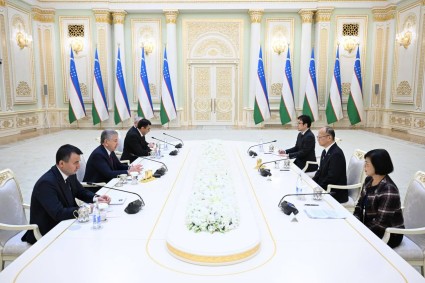The World Bank’s Board of Executive Directors approved a project that will help increase access to and improve the quality of early childhood education in Uzbekistan.
The US$ 73.85 million Promoting Early Childhood Development Project is financed through a US$ 59.5 million credit from the International Development Association (IDA) and grants from the Global Partnership for Education (GPE) and the Global Partnership for Results-Based Approaches (GPRBA) in the amount of US$14.35 million.
Despite high levels of public investment in preschool education in Uzbekistan, only about 29 percent of children aged 3 to 7 were enrolled in preschools in 2017– an extremely low percentage compared to other countries. Teaching conditions in preschools across the country are not optimal, with high student-teacher ratios and the majority of preschool teachers holding only a secondary vocational education degree.
Moreover, there is no system in place to assess the quality of preschool education – an important measure for evaluating whether small children are being adequately prepared to enter primary schools. Public preschools also lack the necessary infrastructure, equipment and furniture required to create safe and comfortable conditions conducive to learning and for promoting children’s development.
“Investment in young children’s education is a highly effective means to promote human capital development from an early age and ultimately drive economic growth in Uzbekistan”, said Hideki Mori, World Bank Country Manager for Uzbekistan. “The government of Uzbekistan recognizes the importance of the issue, and this project supports their aspiration to achieve both increased access to and better quality in early childhood education.”
To address these issues, the Promoting Early Childhood Development Project will finance a number of activities to improve the quality of preschool education, including improving access to good quality early learning environments, promoting partnerships with the private sector and enabling the systematic measurement of education quality for informed policy making, strategic planning and monitoring.
The project anticipates that by the end of its completion in 2024, about 40 percent of children aged 3 to 7 will be enrolled in preschool educational facilities, and that more than 1 million children will be attending preschools equipped with improved learning environments, including modern child-friendly and age-appropriate equipment and furniture, teaching and learning materials, toys, recreation zones, computers and better-trained teachers.
The project will also support the development and implementation of alternative models of early childhood education, including remote learning that will increase access to preschool education for children living in rural and underserved areas. This approach will help disadvantaged children and contribute to addressing the current inequalities of opportunities in the educational system.
The project is expected to stimulate public-private partnership development through a social impact bond - an innovative financing mechanism –- that ties financial returns and payments to rigorously measured results. Under this scheme, 140 private preschools located in urban areas of Uzbekistan will deliver appropriate educational services so that the Government can concentrate funds in rural areas.
The World Bank supports Uzbekistan through 21 projects, totaling over US$ 3.53 billion, in addition to a number of analytical and advisory services. These activities contribute to the country’s overall economic growth through the implementation of macroeconomic reforms, improvements of agriculture and water resources management, energy, transport, healthcare, education, urban development, and water supply and sanitation services.











